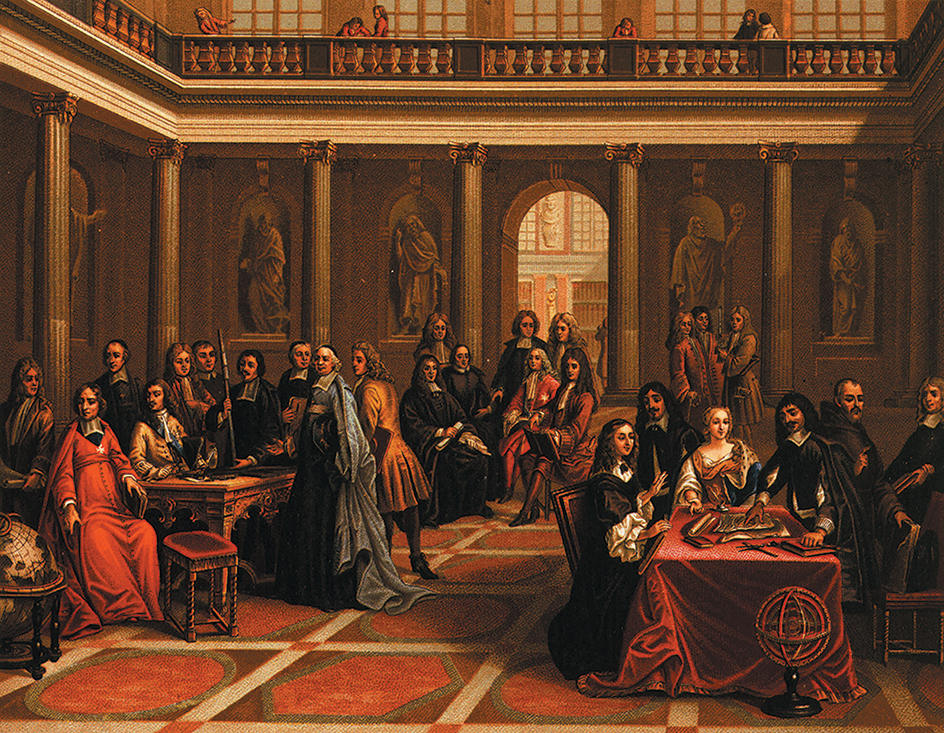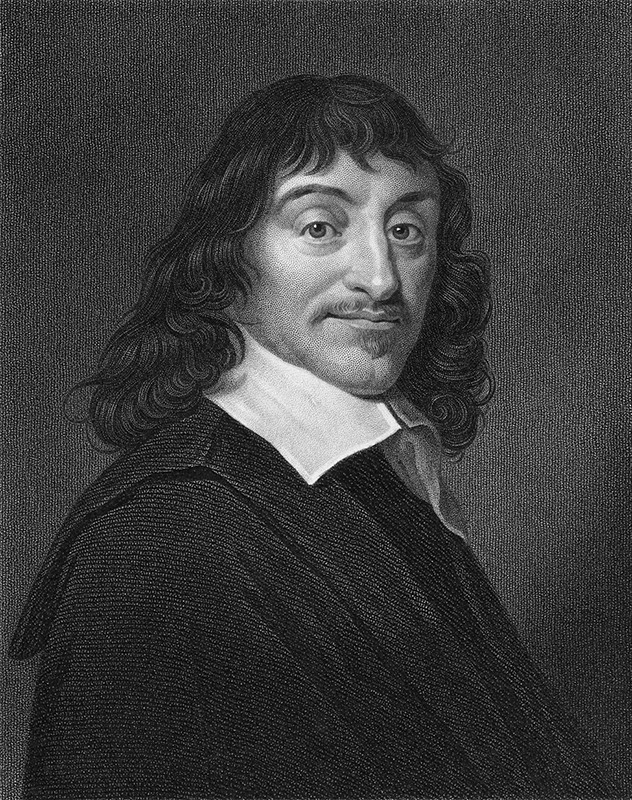Descartes, René, << day KAHRT, ruh NAY >> (1596-1650), was a French philosopher, mathematician, and scientist. He is often called the father of modern philosophy. Descartes invented analytic geometry and developed a detailed account of the physical universe in terms of matter and motion. He was a pioneer in the attempt to formulate simple, universal laws of motion that govern all physical change.

Descartes wrote three major works. The first was Discourse on the Method of Rightly Conducting One’s Reason, and Seeking Truth in the Sciences (1637), commonly known as the Discourse on Method. The others were Meditations on First Philosophy (1641), perhaps his most important work, and Principles of Philosophy (1644). His philosophy became known as Cartesianism.
His life.
Descartes was born on March 31, 1596, at La Haye, near Chatellerault, and was educated at a Jesuit college. He served in the armies of two countries and traveled widely. Money from an inheritance and from patrons enabled him to devote most of his life to study. From 1628 to 1649, Descartes led a quiet, scholarly life in the Netherlands and produced most of his philosophical writings. Late in 1649, he accepted an invitation from Queen Christina to visit Sweden. He became ill there and died on Feb. 11, 1650.
His philosophy.
Descartes is called a dualist because he claimed that the world consists of two basic substances—matter and spirit. Matter is the physical universe, of which our bodies are a part. The human mind, or spirit, interacts with the body but is entirely distinct from it and can, in principle, exist without it.

Descartes believed that matter could be understood through certain simple concepts he borrowed from geometry, together with his laws of motion. In Descartes’s view, the whole world—including its laws and even the truths of mathematics—was created by God, on whose power everything depends. Descartes thought of God as resembling the human mind in that both God and the mind think but have no physical being. But he believed God is unlike the mind in that God is infinite and does not depend for His existence on some other creator.
In Meditations on First Philosophy, Descartes sought to provide the foundations of human knowledge. He first considered the strongest reasons that might be used to show that he could never be certain of anything. These so-called “skeptical” arguments included the idea that perhaps he might be dreaming, so that nothing he seemed to perceive would be real. In another argument, Descartes reflected that perhaps God or some evil spirit was constantly tricking his mind, causing him to believe what was false. Descartes then responded to these arguments. He began with the observation that even if he were dreaming, or constantly deceived, he could at least be certain that he had thoughts, and therefore existed as a thinking being. This, he wrote, was a “clear and distinct” perception of the mind. Nothing could make him doubt it. In another work, Descartes introduced the famous Latin phrase cogito ergo sum, which means I think, therefore I am.
Descartes then argued that he could also clearly and distinctly perceive that an infinitely powerful and good God exists. This God would not allow Descartes to be deceived in his clearest perceptions. Through this conception of God, Descartes sought to establish that the physical world exists with the properties the philosopher assumed in his physics. He continued to hold, however, that sensory appearances are often misleading.
See also Enlightenment (The worship of reason) ; Philosophy (Modern philosophy) ; Psychology (Beginnings) ; Science (The scientific revolution) .
